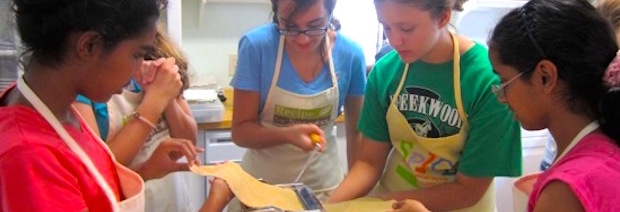All of the schools and centers where Recipe for Success (RFS) currently provides programming are in food deserts. We see the impacts of this every day with the students we work with--it's faster to walk to the fast food joint and get a burger and fries than to search out fresh produce that may be expensive or in bad shape.
This is not a new problem to Houston, and many other major cities across the United States. So we felt fortunate when during the summer of 2010, the Food Trust, a non-profit based in Philadelphia, contacted RFS, the Houston Food Policy Workgroup, the City of Houston and many other groups, for information on the situation in Houston.
The Food Trust visited Houston, put together the data, and created many powerful maps illustrating the serious problem of food deserts to create their report, titled Food for Every Child: The Need for More Supermarkets in Houston.
In the maps, data related to supermarket sales, income levels, and diet-related deaths are combined to find the areas of Houston most in need. Diet-related diseases include diabetes, hypertension, certain kinds of cancers, obesity, and others. Some of the areas most affected include Sunnyside, the 5th Ward, and the Northside--something many people assumed, but now is validated by data.
Consider this statistic from the Food Trust's report: nationally, there is one grocery store for every 8,600 people. In and around Houston, there is one grocery store for every 12,000 people. And remember: nearly two-thirds of Texans are overweight or obese. Other studies have shown that the closer one lives to a supermarket, the healthier they tend to be. Clearly, there is a relationship between income level, access to supermarkets, and diet-related diseases and deaths.
As part of my position as Director of Recipe Gardens and Agricultural Outreach with RFS, I serve as co-chair of the Houston Food Policy Workgroup (HFPW). I contacted Miriam Manon of the Food Trust to present to the HFPW about the report, where she highlighted some of the next steps that need to be taken. A task force is being put in place that includes leaders from the city, public health, the supermarket industry, and other stakeholders. From there, the Food Trust advises to "create a grant and loan program to support local supermarket development", similar to the Pennsylvania Fresh Food Financing Initiative that was so successful in their home state. Creating public policy to promote building supermarkets in low-income areas is another avenue to help solve this problem, and encourage economic development.
A quote at the end of the report struck me as the heart of the issue: "People who can only access poor food choices eat poorly." Many of these people are children. We need to make supermarket access a priority, to improve public health for those who need it most.
For those who need an even quicker solution: get outside and plant those spring seeds in your vegetable garden!
Many happy harvests,
--Sharon Siehl
Access the Food Trust's report here: Food for Every Child: The Need for More Supermarkets in Houston, and The Houston Chronicle's food desert editorial.

















